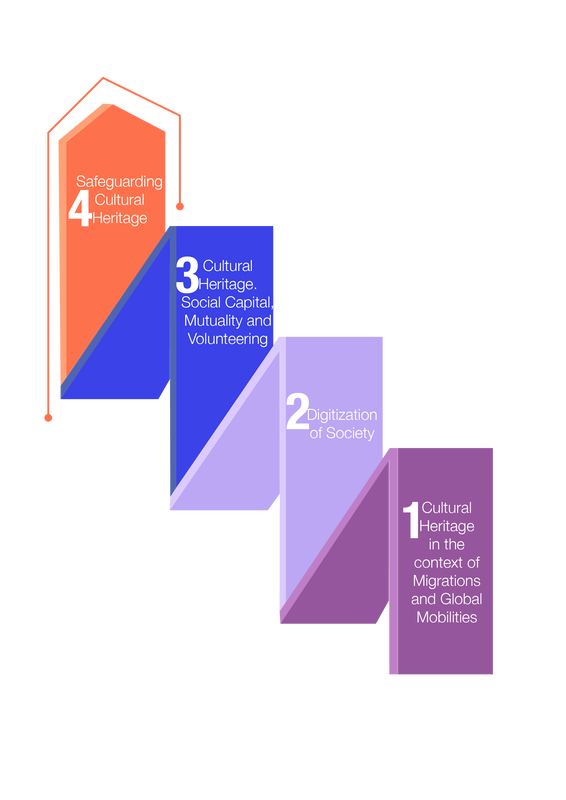About Trasnational research teams in cultural heritage
What are the TRT?
|
UNA-EUROPA TRANSNATIONAL RESEARCH TEAMS IN CULTURAL HERITAGE:
In the early stages of Una Europa’s Self-Steering Committee’s in Cultural Heritage work, we also realized that our aim is to move beyond a simple curriculum, workshop or project and to create a place of exchange and regular interaction – a transdisciplinary, transnational and trans-sectoral ecosystem in cultural heritage, consisting not only of professors from Una Europa universities, but also researchers, students and heritage professionals. This ecosystem will also serve as a basis for all our future projects and collaborations. With the objective to operationalize its development, we defined a limited number of initial interdisciplinary CH research themes to serve as a basis for the creation of transnational research teams. The themes and the related teams are conceived as dynamic and moving parts of the ecosystems. They intend to follow and reflect the evolution of the research themes of the professors and PhD students of Una Europa universities, as well as the evolutions in the Cultural Heritage field. In a bottom-up approach – after conducting a thorough mapping of cultural heritage research, teaching and learning in our 8 universities, and having in mind the global trends in the cultural heritage field, namely, 2014 Strategic Research Agenda of the JPI and other EU priorities, we defined 4 interdisciplinary CH research themes to serve as a basis for the creation of transnational research teams. |
Let´s talk about trt4
Safeguarding Cultural Heritage
Cultural Heritage is not an inherently given characteristic of objects, structures or practices. It is the result of the attribution of meaning and values by local or international communities. During the last four decades, the significance of cultural heritage and the values associated with it have become a subject of increasing interest. Definitions and concepts have expanded and changed over time, as have the meanings behind them and the reasons for which heritage is appreciated and protected. The preservation of cultural heritage can be threatened when the attributed meaning becomes diluted or commercialized, when the communities concerned loose access to their cultural heritage, or when external factors (such as climate change) put pressure on the material conditions of preservation. This transnational research theme can address topics as responsible, sustainable, cost-efficient, community-based, long-term and resilient preservation and management of cultural heritage.
- Material preservation of cultural heritage
- Safeguarding intangible heritage
- Recent cultural heritage
- Ethical dimensions of cultural heritage
- Climate change and resilience

